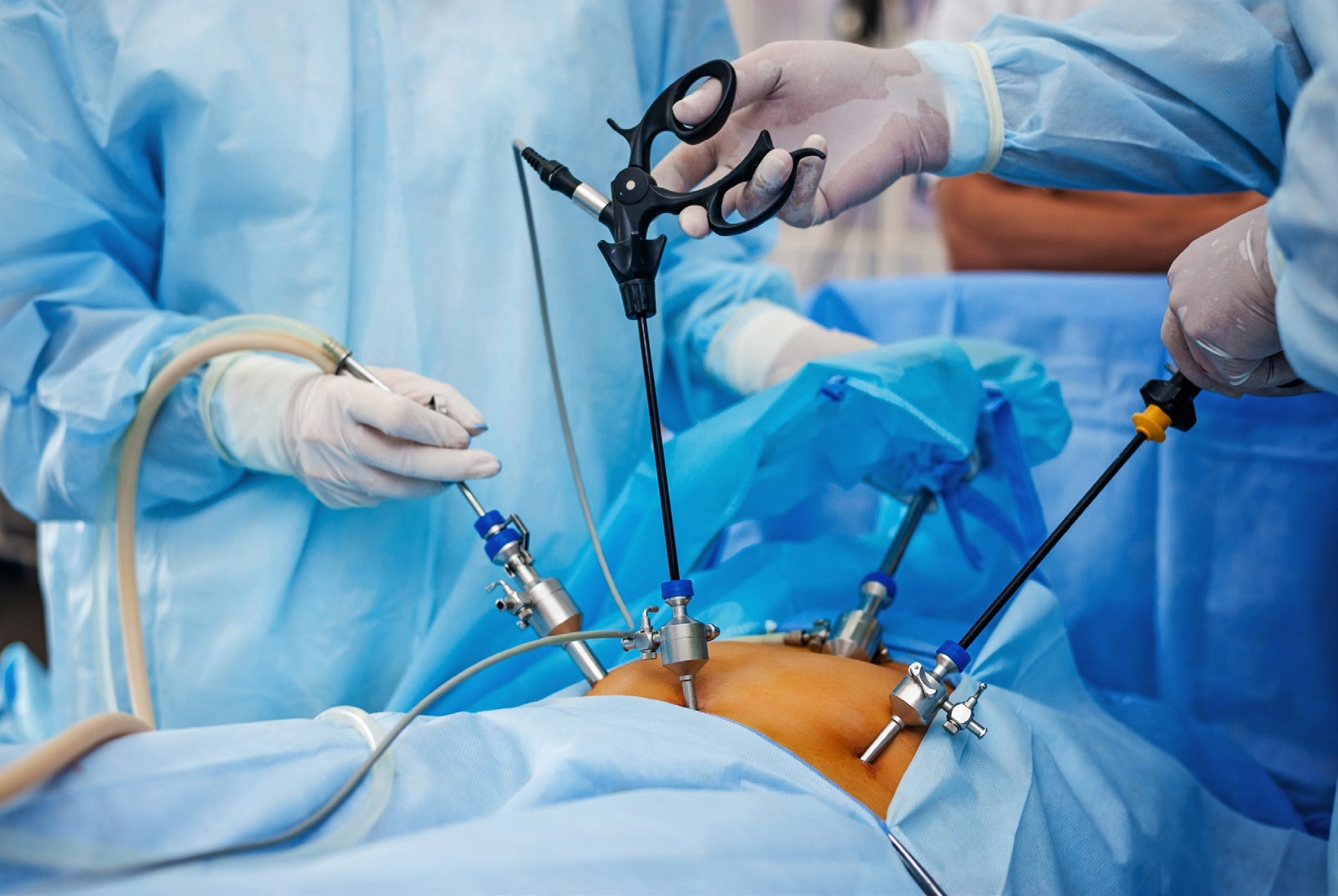What is Laparoscopy?
Laparoscopy is a type of surgical procedure that allows the surgeon to access the inside of the abdomen and pelvis without having to make large incisions in the skin. It uses long narrow instruments to view, dissect, cut and remove diseased parts from the body.
Laparoscopy has a light source and a camera, which relays images of the inside of the abdomen or pelvis to a television monitor.
This procedure is also known as keyhole surgery or minimally invasive surgery.
Benefits of Laparoscopy
- Tiny incisions/ scars
- Less post operative pain
- Quicker return to normal activity
- A shorter recovery time
- Lower Risk of Complications
Conditions that can be treated laparoscopically
- Appendicitis
- Gall stones
- Hernias
- Obesity / Bariatric Surgery
- Rectal prolapse
- Colon and rectal polyps or tumours
- Diverticular disease
- Colon volvulus
- Inflammatory bowel disease
Laparoscopic Cholecystectomy
Laparoscopic cholecystectomy is minimally invasive surgery to remove the gallbladder. It helps people when gallstones cause inflammation, pain or infection.
Gallstones are crystals that form in the gallbladder. They can block the flow of bile out of the gallbladder into your digestive system. This roadblock
causes cholecystitis (inflammation of the gallbladder). Gallstones can also move to other parts of the body and cause problems.
Bariatric Surgery
Laparoscopic techniques are commonly employed for weight loss surgeries, such as gastric bypass and sleeve gastrectomy. This approach offers less scarring, reduced pain, and a faster return to normal activities for individuals seeking weight loss solutions.
Laparoscopic Nissen Fundoplication
Laparoscopic Nissen fundoplication is a modern surgical approach for treatment of severe gastroesophageal reflux disease (GERD).
GERD is a chronic disease that occurs when stomach acid or bile flows into the food pipe and irritates the lining. Acid reflux and heartburn more than twice a week may indicate GERD.
The surgery tightens the junction between the esophagus and the stomach to prevent acid reflux.
Laparoscopic Colorectal Surgery
Laparoscopic Colorectal Surgery is a modern minimal invasive surgery that allows quicker recovery, has less post – operative pain and earlier return to daily activities and work.
It’s indicated for appendicitis, colon cancer, rectal prolapse.
Laparoscopic Hernia Repair
- A hernia is protrusion of internal organ(s) through a weakness (opening), in the abdominal
- Patients complain of swelling in the abdorminal wall, or groin area, with or without
- Hernias can be repaired by open surgery or laparoscopic
In conclusion, laparoscopy has transformed the landscape of surgery by offering a less invasive alternative with numerous benefits. Its diverse applications across various medical specialties make it a valuable tool in enhancing patient outcomes and satisfaction.

